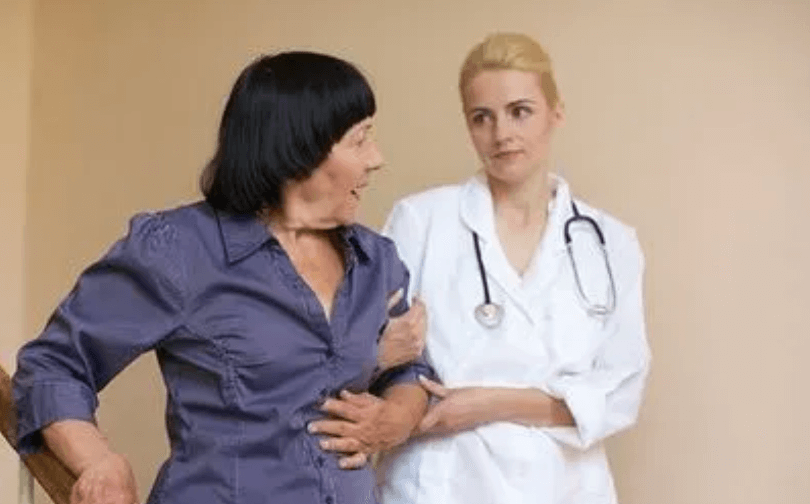Disease
Can Non-Surgical Methods Such As Medication, Diet, Exercise, Vaccines Or Vitamins Get Rid Of Lung Nodule
The reality is that many people with lung nodules want to know. After all, curing lung nodules without surgery meets the needs of most people. So, can these modalities get rid of lung nodules?

Mr Wang, a man in his 40s, never smoked or drank alcohol, went to bed early and woke up early and loved to exercise, so he had a healthier lifestyle than most people.
However, about a year ago, he had several tiny nodules in both lungs, one of which was about 5mm in size, detected by regular low-dose spiral CT of the lungs.
For the average person who has a lung nodule detected, there are few people who are not scared because nodules, if malignant, are lung cancer and can continue to grow or even spread, putting their lives at risk. But for Mr Wang, the fear may be even greater.
For one thing, Mr Wang has lung cancer in his family. Therefore, we can call a nodule patient with a family history of lung cancer a little higher risk of developing cancer compared to the general population.
Secondly, at the regular one-year follow-up, the larger pure ground glass nodule (i.e. hairy glass nodule) in Mr. Wang's right lower lung had slightly increased in size (by about 1 mm) and had a slight change in density. These could be indicative of a bad outcome.
Both of these things filled Mr Wang with dread. However, when asked if he should have surgery as soon as possible, several specialists said "it is not easy to say" and "I am not sure", and did not give a clear answer.
The problem needed to be solved and it was too uncomfortable to be on tenterhooks all day, so Mr. Wang contacted Dr. Christopher G. Azzoli, former Chair of the American Society of Clinical Oncology (ASCO) Clinical Practice Guidelines Committee and a lung cancer expert, to get clear guidance through a teleconsultation.

The lung cancer expert answers questions
Dr. Azzoli quickly provided guidance based on Mr. Wang's past data and addressed his current concerns.
1. Are these nodules malignant or benign?
Dr Azzoli: After reviewing the patient's previous imaging data, it was concluded that the risk of these lung nodules being malignant is very low. They are probably benign adenomatous growths. Of course, the only way to confirm the benignity of the nodules is by pathological biopsy, which can be considered either by preoperative puncture biopsy (currently not indicated) or by postoperative biopsy of the excised lesion.
Although the nodule becomes slightly larger and changes slightly in density during the 1-year follow-up period, it is still not definitive that it is malignant, as the magnitude of change is very small and may only be due to subtle differences in the machine and operation.
In addition, such nodules in patients, even if malignant, do not progress beyond the carcinoma-in-situ stage in the short term. At the carcinoma-in-situ stage, the cure rate is close to 100% with surgery alone and without medication such as chemotherapy. So it is safe to observe for a further period of time until there is a significant malignant change.

2. Is it possible to eliminate these nodules without surgery through medication, diet, vaccines or vitamins?
Dr Azzoli: Pulmonary nodules cannot be eliminated by medication, diet, vaccines or taking vitamins; unless they are inflammatory, then elimination is possible with a short course of medication. However, this patient's nodules should not be inflammatory.
3. Does the patient need surgery to remove the lung nodules?
Dr. Azzoli: The patient is very young, with a long life expectancy, and if the nodule is highly malignant, then the benefit to be gained from surgical resection is greater. In the future, if the nodule shows signs of malignancy such as an increase in the number of sexualised parts, is significantly larger, or is clearly malignant by puncture biopsy, then surgical resection may be considered.
At present, the patient has more than one nodule, and even if the larger nodule is removed, there is a risk that other nodules may subsequently reappear. Surgical treatment is therefore centred on two things: ensuring that the surgical margins are as free of tumour involvement as possible, and that as little lung as possible is removed and as much normal lung tissue is preserved.

Once surgery has been determined, as tumours with such features and small size can be difficult to find during surgery, then the surgeon usually needs to locate the tumour prior to resection by placing a metal reference point via imaging navigation. Patients need an attentive and experienced thoracic surgeon to perform the procedure in order to preserve more healthy lung tissue.
Many people who find a nodule will hastily undergo surgery because they are overly fearful of the possibility of lung cancer. However, before making a decision, everyone should calm down and ask themselves a few questions.
Are the nodules already clearly indicated and have a high probability of being malignant?
Is the nodule growing rapidly? If they are not removed soon, will they soon progress to invasive lung cancer or even metastasis?
Can all nodules/tumours be completely removed by surgery?
If the nodules are malignant, have I ruled out possible metastases from other sites?
Is there a high probability that no other nodules will pop up after surgery, resulting in the need for another or even multiple surgeries?

The assessment and determination of these questions requires a detailed analysis of the patient's previous findings and personal circumstances by an authoritative expert, rather than a hasty conclusion of "cut and see" or "no cut". As the lung is a non-renewable organ, if part of it is removed, part of the lung function will be lost. If inappropriate surgery is performed at the wrong time, the patient will suffer more than the disease itself and may have wasted a limited opportunity to have surgery. A remote consultation with a leading international expert such as Dr Azzoli is likely to quickly dispel any doubts, clarify the direction of treatment and avoid the risks mentioned above.
-
![]()
![]() DiseaseDec 24, 2024
DiseaseDec 24, 2024How Can a Baby Have "Pimples" On His Face When He Is So Young?
-
![]()
![]() DiseaseDec 23, 2024
DiseaseDec 23, 2024Prevention of cardiovascular disease is more important than treatment
-
![]()
![]() DiseaseDec 22, 2024
DiseaseDec 22, 2024What Do I Need To Do To Check Myself For Nasopharyngeal Carcinoma? What Tests Are Needed To Confirm The Diagnosis Of Nasopharyngeal Carcinoma?
-
![]()
![]() DiseaseDec 21, 2024
DiseaseDec 21, 2024What Causes Oesophageal Cancer? What Symptoms Can Esophageal Cancer Cause In The Body?
-
![]()
![]() DiseaseDec 20, 2024
DiseaseDec 20, 2024Uremia Is Most Likely To Be "Dragged Out", The Body Appears 3 "Abnormal", Check As Soon As Possible




